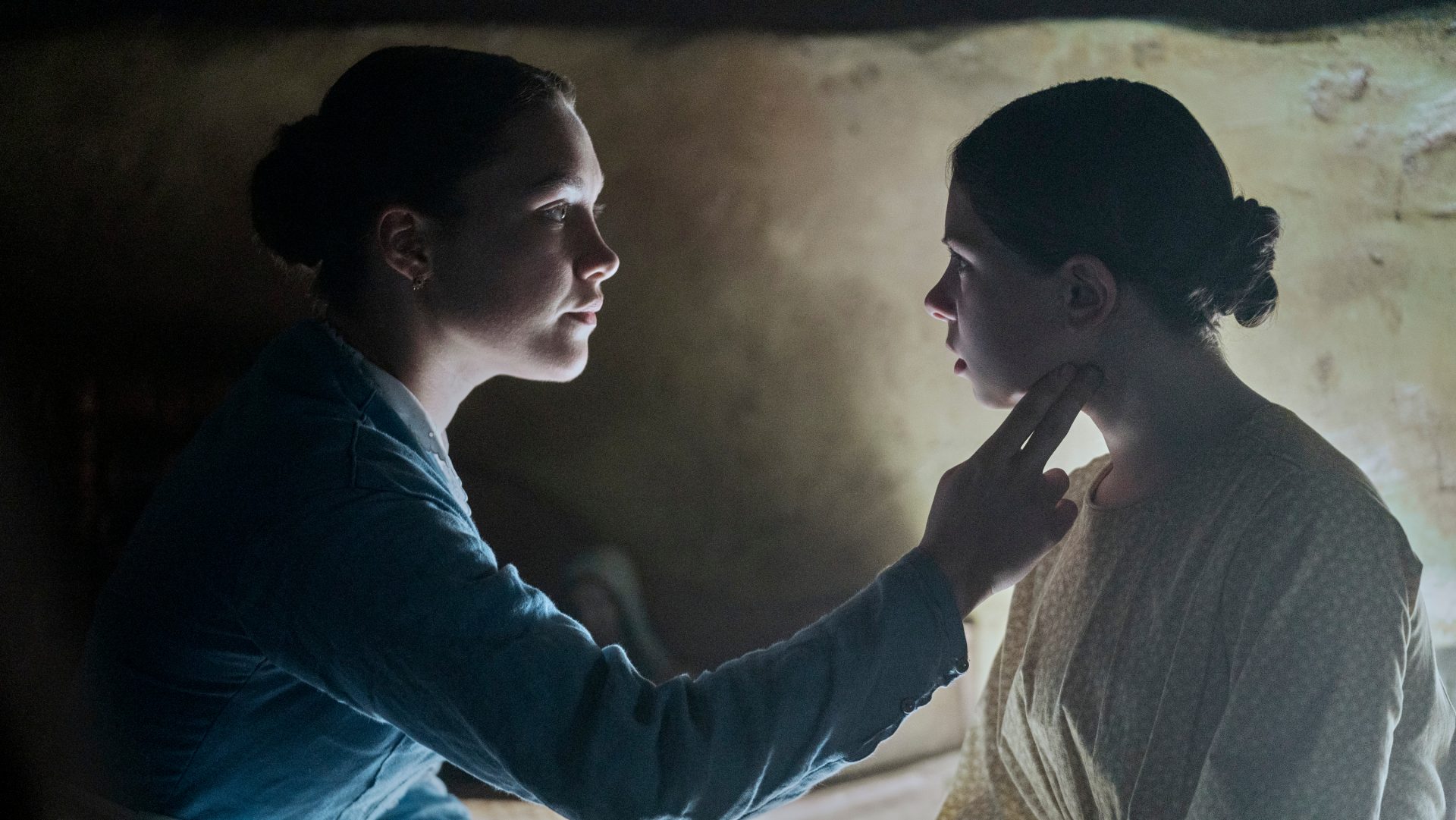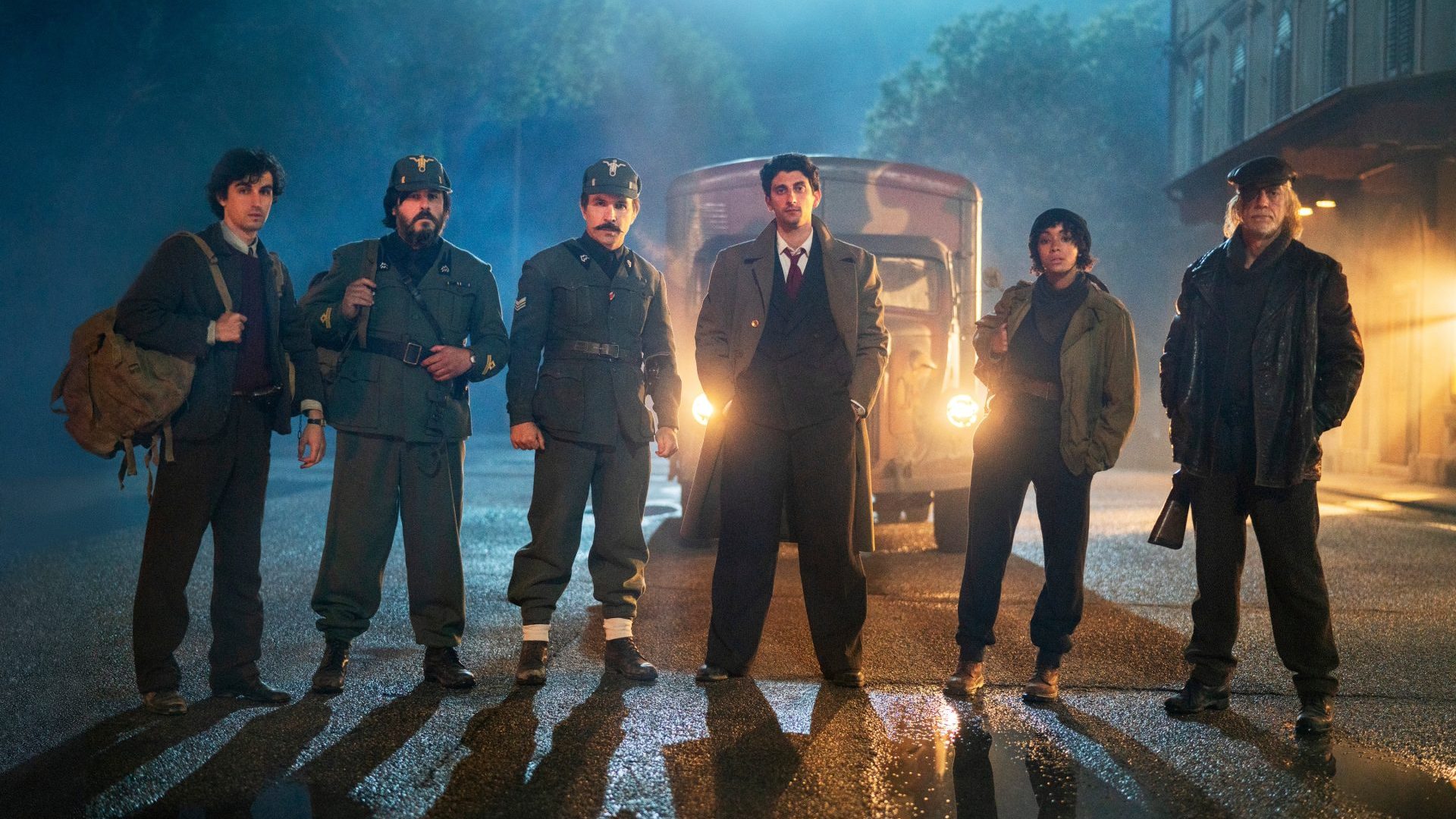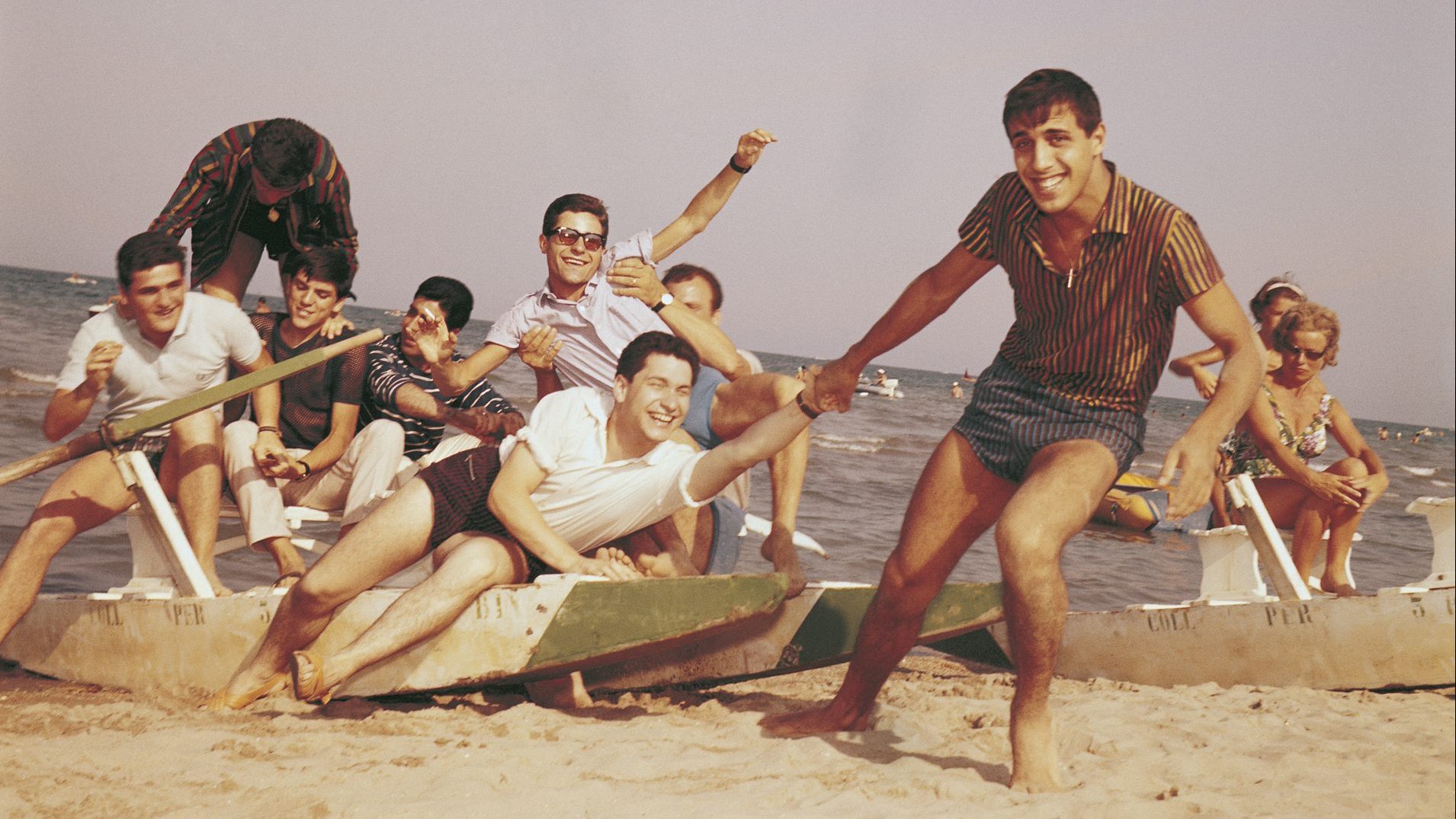Set in the Irish Midlands in 1862, a land still blighted by the Great Hunger, Sebastián Lelio’s new film The Wonder somehow boasts a timeless quality, like a dream or, as he’s keen to point out, like most stories.
Lelio is from Chile, but it feels as if he has an intuitive grasp of the rural Irish setting and superstitious villagers who, in this film based on writer Emma Donoghue’s novel, are coming from miles around to witness what they increasingly believe is a local miracle: a young girl surviving in perfect health despite claiming she has not eaten for four months.
“Of course, this film isn’t really about Ireland, 1862,” he whispers, in excellent English that’s crisp and precise but accented with soft sibilants. “It is more universal, more timeless. I’m a foreigner and there were cultural specificities here that I had to educate myself about, but really it’s about an oppressive community and a woman colliding with what that society dictates. I got that right away.”
Lelio often gets women like that. In his previous film, Disobedience, he was immersed in the Orthodox Jewish community of north London for a torrid tale of forbidden love between Rachel Weisz and Rachel McAdams. Before that, he won the 2018 Oscar for Best Foreign Language film with A Fantastic Woman, starring Daniela Vega as a trans woman shunned for having an affair with a married, older man in Santiago. Before that, in Gloria, Paulina García won Best Actress at Berlin in 2013 for her portrayal of a woman of a certain age hitting the singles scene – it’s a role Lelio later gave to Julianne Moore in his own US remake, Gloria Bell.
In The Wonder, it’s Florence Pugh’s nurse, Lib, a no-nonsense woman from northern England who has served in Crimea and who is sent for, so that she can observe this phenomenon of the starving girl. Typically of actresses under Lelio’s lens, Pugh gives a remarkable performance, her chin set fair against gossip and fairytale, determined to get to the truth of this miracle, much to the annoyance of many of the town’s whiskery senior figures (played by actors including Ciarán Hinds and Toby Jones), for whom a bona fide miracle would represent good business as much as any confirmation of the Lord’s mysterious powers.
“I grew up in the south of Chile in the 1980s and it was a very dark time for my country, a very rural, Catholic society under a dictatorship – I felt very strong connections with this time in Ireland,” says Lelio. “And I identified very strongly with the woman at the centre of the story. I don’t know why, but I always seem to identify with these female characters, trapped in a patriarchal system. I’m drawn to them. It’s when they fight against the mandates of their system we get the friction and the sparkles and I guess that’s what I’m trying to capture.”
Pugh sparkles all right. You can hardly take your eyes off her as she gives what she’s witnessing the hard stare, intent on getting to the crux of this miracle, this young girl who says she’s surviving on “manna from heaven”.
“I’m lucky because Florence’s face is one of the magic miracles of cinema,” says Lelio with a smile. “I think she’s got magnificent technical ability, but what is special is that she’s got real integrity and the camera picks up on that right away and the audience can trust her and believe in her. I think it’s one of the great pleasures of cinema to watch a performer like that, someone who is battling her character, really fighting and winning – I feel that being a director is to participate vicariously in a victory.”
Pugh’s Lib is using science to fight myth, to clash with another belief system. She follows logic and reason to arrive at a conclusion. But it’s then that the film’s real complexity emerges, a twist of thought that I found hypnotic and brilliant.
“Yes!” exclaims Lelio, seemingly excited that I’ve understood his film and intentions. “The mechanics of how the girl is alive, lead to the why, and the results are so devastating that it requires drastic action, something that could be conceived as irrational, you see. So Lib has to transcend reason and it’s Florence’s skill as an actress that means we still go with her on this next leap of faith.”
Lelio’s film looks beautiful, shot by cinematographer Ari Wegner who lensed Power of the Dog for Jane Campion. It sounds good, too, with a score composed by the British musician Matthew Herbert, working with Lelio for the fourth time. “He made something other-worldly, eerie, something ethereal that gives the film that timeless quality,” says the director.
“They’re dreamy sounds, modern sounds because the film isn’t about 1862, as I said – it’s about now, when we have so much fake news, so much difficulty finding the truth, so much deception, and as long as these belief systems continue, we will have battles and division. People don’t want to believe in truth if it doesn’t suit their system, they don’t want to look, to see what’s really happening.”
The Wonder has curious bookends. It opens and closes on a soundstage, with the actress Niamh Algar, who is also in the main action of the film, wearing contemporary dress and giving us a dry, Brechtian-style narration about the power of stories. We can see the lights and camera kit, the scaffolding of a movie set and those boxes of electrical equipment you get backstage at music festivals.
It’s a clear invitation to think about the mechanics of storytelling, the fabric of fictions, and how we construct systems. It’s like watching the machine at work. “Because all stories require you to believe in them,” says Lelio. “I’m saying to the audience, you will have to think about this, you will have to ask what’s real and what you want to believe in. And that is what cinema is, no? A product of science and the industrial revolution, a triumph of reason and logic, which results in an ethereal, magical, ungraspable end that’s similar to thoughts, feelings and beliefs…”
He’s on a bit of a roll now, and it’s fun to watch him so engaged. He’s a terrific film-maker, I think, one of the best around right now, and he must be a pleasure to work with. “So that’s cinema’s essence,” he continues. “The way a viewer believes in what a film is telling them, that’s the same mechanism we use to believe all other things in life, that’s the religious aspect of cinema; you don’t need a God for that.”
Alongside the passion, I sense a real anger in Lelio that burns sometimes and simmers away the rest of the time. He’s hurt by bigotry, perhaps towards him and certainly towards others, and has obviously seen, first-hand, the evil of a political system in Chile that wrought untold misery and pain on a population. He’s also a very sensitive soul, delicate and fragile, with bright, dancing eyes and a careful, light walk. When you meet him and chat – I see him the next day at the film’s London premiere – you realise his films are quite a perfect reflection of all of that.
“I think dark and light is where the best cinema exists,” he says. “I am drawn to moral complexity and the mental process people go through to deal with their dilemmas. And I like cinema that requires you to think, to participate in those thoughts. You can’t be passive, you have to be involved. That’s what cinema is – what Godard said: ‘It’s thought in the form of spectacle’, and I stick to that very much.
“It’s more important than ever to believe movies like that, because believing has become so dangerous today, so many systems and mechanics to get huge numbers of people to believe something. All I’m saying is that you have to beware of the tricks and the systems – really look at how they work.”
The Wonder is in UK cinemas from November 3 and on Netflix from November 16




